The Ultimate Guide on How To Help The Poor
Many of us desire to help the poor transcend poverty. Here, you will find inspiration, ideas, and motivation to support that effort. Helping others is the good stuff!
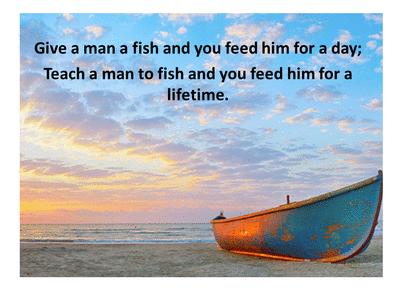
Remember The Goal
There it is – the most famous quote about poverty and the poor and how we should help. It’s our goal – our mantra. But have you ever looked around to see where it is being practiced? It’s not in our welfare programs – most distribute benefits, and there is minimal teaching. What about the charities you know? Are they just giving stuff away? Or do they work one-on-one with the poor to help them tackle life? Some good programs hit the goal of “teaching a man to fish.” But far too few. It is missing in America. But here you are, and you can help solve that! Don’t underestimate your potential contribution or the needs out there.
Add Friendship – It’s Missing

Mother Teresa once said: “We know what that poverty means, first of all, to be hungry for bread, to need clothing, and to not have a home. But there is a far greater kind of poverty. It means being unwanted, unloved and neglected. It means having no one to call your own.” [i]
In the United States, our welfare programs and charities try to address “bread, clothing, and home,” but they generally don’t address “unwanted, unloved, and neglected.” For that, we need caring individuals.
Friendship is missing in the war on poverty; too many people avoid the poor. How we got here is a long and tortuous path filled with government solutions gone awry, political correctness saying don’t judge people, and fear of everything from safety to litigation. But friendship shouldn’t bother with such things. Life is a challenge, and people need friends. Can you help the poor – that is simple. Can you be friends? More
Cause a Class Encounter
Mother Teresa also said: “We have no right to judge the rich. For our part, what we desire is not a class struggle but a class encounter, in which the rich save the poor, and the poor save the rich. [i]” Do you believe that to be true? Friendship is a two-way street. Friendship generates pride on both sides, but only if both think the other side has worth. Mother Teresa understood that point, having worked with the poorest people her whole life. Find that respect in your encounter with the poor, and you will help them find their pride. In turn, they will impart some wisdom and advance your soul. It’s the good stuff.
- Help the poor to help themselves
- Cause a class encounter
- Add back the mentors
- Shed the guilt
- Follow the old definition of compassion
- Don’t rely on government alone
- Don’t blame doesn’t mean do nothing
- Have Empathy
- Recognize the value of the poor
- Take your motivation from great people
- Don’t shy away from giving advice
- Embrace tough love
- First do no harm
- Make compassion effective
- Never prosper on the poor
- Work one on one
- Follow the oath of compassionate service
- Work through good charities
The Website
This website exists solely as a public service. There are no fees, no advertising, and no revenues of any kind. It is sponsored by individuals who want to give back and help others. We would love to hear from you!
Follow Your Conscience, Shed The Guilt
Many Americans have an inner voice pushing them to help their fellow man. Follow it. It is your guide to making a difference in someone’s life. You and your feelings are not alone. Religion teaches us to be compassionate to the poor. But it is also innate in almost everyone. So don’t ignore your conscience. Particularly if you also feel guilty. That erodes your soul over time.
You can help others through a charity or by striking out on your own. There are good ideas below. Don’t underestimate the power of connection with others. You can start with a simple conversation and a smile. Perhaps you are called to help someone right under your nose!
Want more information on what the bible instructs? Here it is.
Know the Great Reward
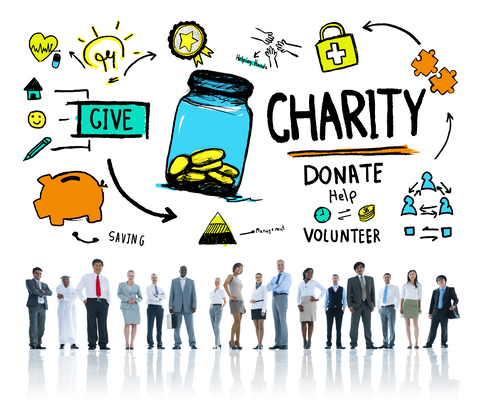
The desire of humans to help each other is immense. We know deep in our souls we are called to help. The United States is one of the most giving cultures on earth. Americans have a strong history of giving to charity and volunteering time. 73% of Americans donated to charities over the past year, and 58% volunteered their time. More
Hats off to anyone working directly with others to try and help them realize their full potential and help them grow as individuals. Hats off to mentors, coaches, teachers, parents, guardians, social workers, and poverty warriors. We must never forget how significant our involvement is. Most of the time, efforts are made without fanfare, payment, or even a thank you. But our souls are changed. That is the great reward – it’s the good stuff.
Change The Approach

Can’t Rely on Government Alone
The government alone hasn’t solved the poverty problem in America. The poverty line has been flat in America for over 60 years. We have spent more on welfare but have not lowered the poverty rate. People have to get involved. We have lost track of the purpose of welfare.
Add Back The Mentors
What happened to America? Where did the mentors go? Who guides the poor? The simple answer is that private citizens stepped back as government programs stepped up. However, even President Lyndon Johnson, whose Great Society programs created the welfare system, said poverty couldn’t be solved by the “government alone” More. But the citizens stepped back anyway and absolved themselves of any duty. It is time we added them back. More
“Don’t Blame” Can’t Mean “Do Nothing”

We don’t work with the poor because we are afraid to get personal. The prevailing logic is that judging the poor is not our business – it is simply inappropriate. But we can’t have it both ways – we can’t believe in teaching and yet be afraid to discern the level of education of the pupil. We also feel we should not blame the poor for their poverty. Fair enough. But we often do nothing to help them because we shouldn’t judge them. That’s wrong. We need to strike a better balance. More
Make Compassion Effective
Have you ever thought about where compassion is measured? We usually do it at the “giver” and don’t think much about the “receiver.” But it makes a big difference. There is no confusion about where we measure the success of a doctor. It is done at the patient level – the doctor’s desire to help is secondary. But in the poverty world, we think it is compassionate if we do anything to help our fellow man. Measuring the impact of our giving is not addressed. Often, we don’t even know the people we are helping. We usually give to a charity and assume they do good things with the money. We don’t involve ourselves with what impact the charity is making. However, we must measure the impact of our giving or service if we want effective compassion. Effective compassion is the new standard to adopt. More
Never Prosper From the Poor
Many of today’s poverty warriors are “poverty pimps.” They prosper from the poor. They make big salaries or take a cut on goods distributed. By making the poor financially independent, they lose their gravy train. The poor experience this problem all too often. Here is how we should address this issue with the poor:
Turn away from things and people not helping lead you to a life of financial independence. Find people who want to help you develop life skills, an education, and a work ethic. Life is complex and complicated; we all need help navigating it. Learn from others’ experiences. Don’t be bashful, seek wisdom. Many people will take great pride in helping you; someday, you can pass that down to someone else. That is how it has always worked in America and can work that way for you, too.
Be Kind-Hearted
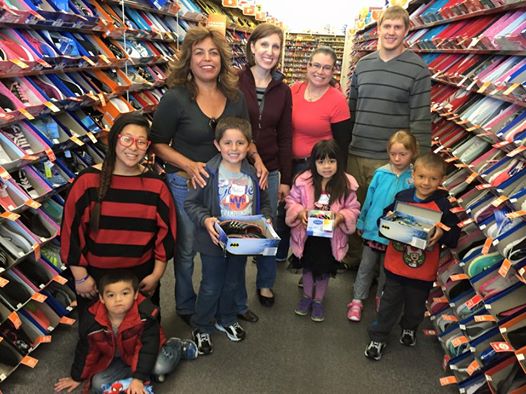
Empathy and respect are what we need in our hearts as we work with the poor. For some of us, that is easy. We have agreeable personalities. For others with more conscientious personality traits, we get frustrated by the lack of organization and motivation the poor often exhibit. But for all of us, we must take the poor where they are and who they are and begin our friendship from there. We can put aside judgments of the past. The past isn’t our job other than to be good listeners and friends. Our focus should be on the present and the future.
Empathy
Empathy for the poor is the fuel that drives many poverty warriors. It is an invaluable trait. Perhaps you have experienced empathy for the poor, which is why you want to help. Such stories are familiar – here is one.
Recognize the value of the poor
A respectful vision of the poor must be the foundation of working with the poor. This is not just lip service; the poor have much to offer the world and you! The most direct way to get this understanding is with the words of Mother Teresa. She worked with the poor all her life and can teach us how to think about and respect the poor. She teaches about:
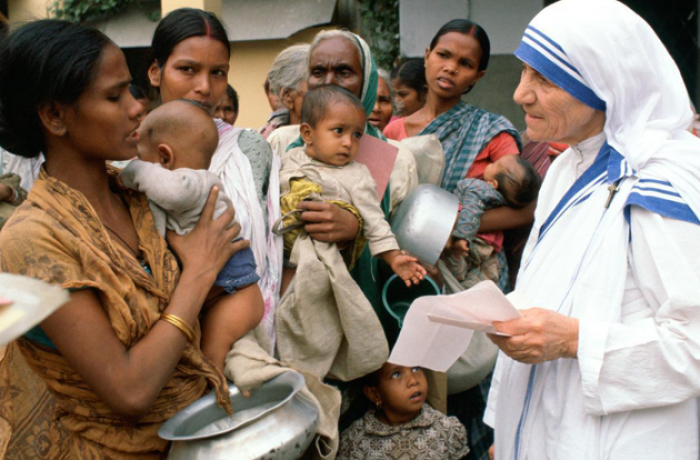
- Material things
- The Dignity of the Poor
- The value of the Poor
- Find the Poor wherever they are
- The value of giving
- Courage to accept each other
- The difficulty of the spiritually Poor
- The power of joy and kindness
Follow the old definition of compassion

A hundred years ago in America, compassion meant “to suffer with.” Today, our definition is closer to sympathy and a desire to alleviate distress. The old definition is a call to action instead of a simple wish. Such action is what is missing from the poverty fight today. More
Take your motivation from great people
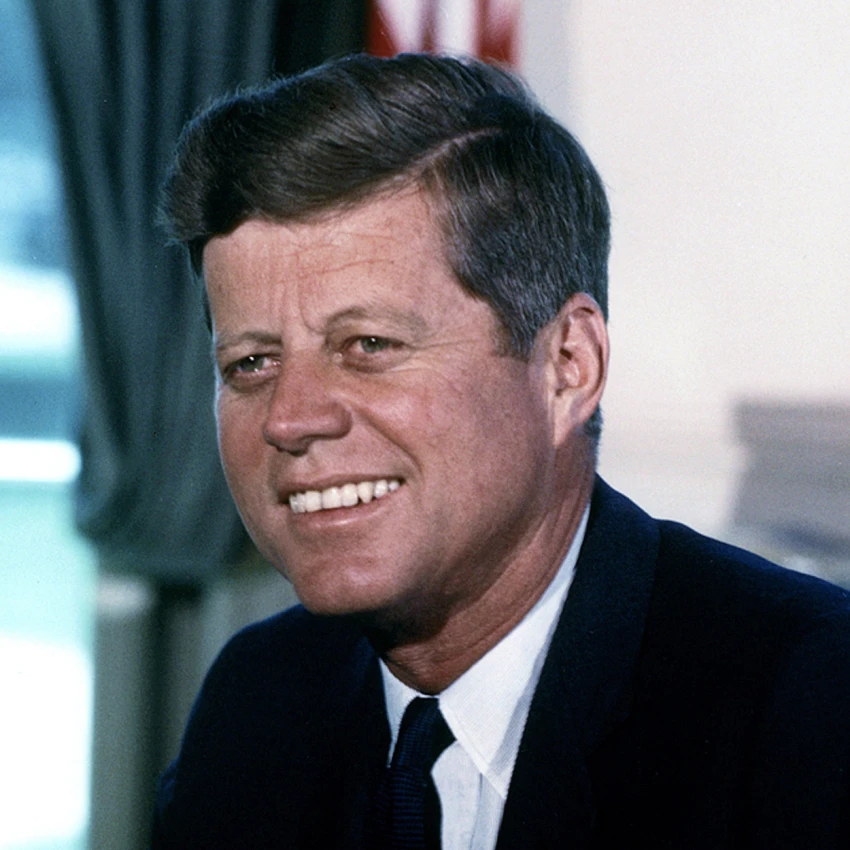
John Kennedy said, “We must find ways of returning far more of our dependent people to independence. We must find ways of returning them to a participating and productive role in the community.” More
Mother Teresa explained the problem with possessions: “so that what I possess doesn’t hold me down so that my possessions don’t keep me from sharing or giving of myself.” More
Mollie Orshansky, nicknamed Ms. Poverty, said: “If it be true that the children of the poor today are themselves destined to be the impoverished parents of tomorrow, then some social intervention is needed to break the cycle, to interrupt the circuits of hunger and hopelessness that link generation to generation.” More
Be Hard Headed
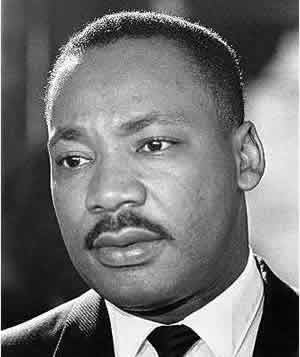
Being kind-hearted is a must to fight the war on poverty. Empathy, caring, patience, and love are all keys to helping our fellow man. But so is being hard-headed. Logic, good ideas, strong will, and hard work are all keys to financial independence. So to help the poor, a person needs to have a kind heart and a hard head. That isn’t surprising. The balance is necessary for a parent, a teacher, a coach, or a good business manager.
Dr. Martin Luther King observed, “The greatness of our God lies in the fact that he is both toughminded and tender-hearted. He has qualities both of austerity and gentleness. [iii]”
The goal is financial independence
There is only one way to transcend poverty: to have a good job and work full-time. That is the most hard-headed fact we must remember as we advise the poor. The poor must embrace this fact.
This is true because the government will never solve the problem by handing out a “living wage.” Food, rent, and other programs might pull people out of poverty, but they will not create a comfortable life. They will not distribute a “living wage,” defined as enough money to provide a comfortable life. That is not a political statement; it is a factual one. Here is a complete analysis.
So, if the government is not the savior, it is up to the people to provide for themselves. We must keep this hard-headed fact in mind as we help the poor. The goal is financial independence; people need a work ethic, minimum education, and life skills to achieve it. There isn’t any other way.
Don’t shy away from giving advice

To help the poor, we ultimately need to be friends with them, and then we need to help them with life’s challenges. Here is what that means: In 1830, a newspaper editor named Mr. Bailly found himself advising a group of young people who wanted to help the deplorable condition of many of the poor in and around Paris, France [iv].
“If you intend, he said, the work to be efficacious; If you are in earnest about serving the poor, you must not let it be a mere doling out of alms, bringing each your pittance of money or food; you must make it a meaning of moral assistance, you must give them the alms of good advice.”
As teachers, coaches, and parents, we see it as our job to give advice. But that is often lacking as we work with the poor. Challenging the poor with goals or teaching skills is considered invasive, judgmental, or rude. That is a shame because many of the poor are young and haven’t had people in their lives to help them with practical knowledge and life skills. Why is dispensing advice seen as politically incorrect? Here is why.
Here is what Mr. Bailly says the alms of good advice entails [v]:
“Then speaking of the poor, he said ‘their one idea, when they fall into distress, is to hold out their hand for an alms, a system that generally proves as ineffectual as it is demoralizing. M. Bailly suggested to his young friends that they should try to remedy this lamentable state of things by placing their education, their intelligence, their special knowledge of life, at the disposal of the poor; instead of only taking them some little material relief, they should try and win their confidence, learn all about their affairs, and then see how they could best help them to help themselves.”
Embrace tough love
Choices matter in life. Good decisions take us to good places; bad decisions take us the wrong way. Sometimes, tough love is necessary to help people make good choices. Particularly in a society like the U.S., where so many bad decisions are at everyone’s fingertips. With all the distractions of life, how do people stay disciplined and stay on track? How do they get an education, establish a work ethic, live within their means, and develop life skills that get built upon? They interact with intelligent people who encourage good decisions and point out bad ones.

Mr. Ron Haskins, from the Broodings Institution, explains it well:
“Call it blaming the victim if you like, but decisions made by individuals are paramount in the fight to reduce poverty and increase opportunity in America. The nation’s struggle to expand opportunity will continue to be an uphill battle if young people do not learn to make better decisions about their future.”
Mr. Haskins made these remarks while testifying to Congress about a plan to avoid poverty that works 98% of the time. Here is the plan. Here is the Congressional Testimony.
Here is a personal story of a man who had to decide between comfort and change for himself and his addicted friends.
Learn to help the poor help themselves
Here is one man’s journey of trying to help the poor to help themselves.
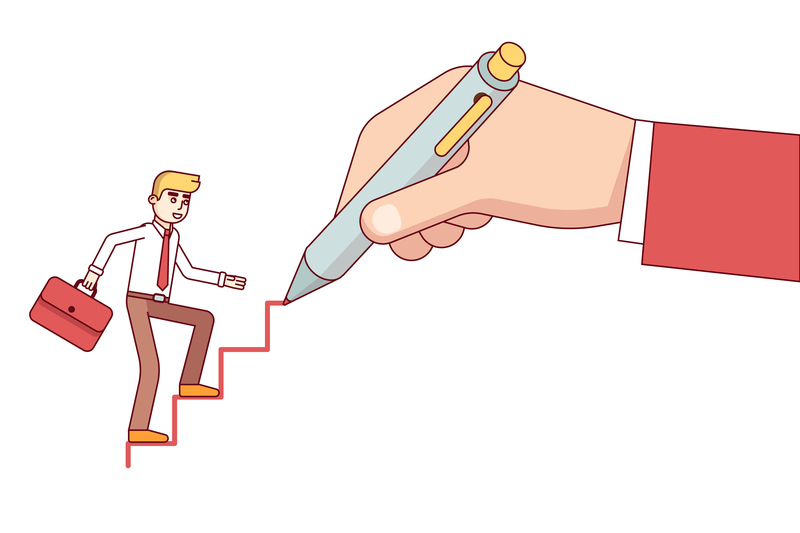
Mentoring isn’t about giving money or things
Mentors should focus on friendship, ideas, plans, and encouragement. They should focus on giving their time, not money or things. If they supply money or material things regularly, then the relationship is altered. Charities of old called this principle the number one rule of mentoring. More
First do no harm
Can we do more harm than good by distributing money or aid to the impoverished? It would be nice if anything we did was always helpful. However, many working with the poor conclude that indiscriminate giving can worsen things. Here are the experts on the subject.
Ideas for Helping the Poor
Working One-on-One; You Are Needed in the War on Poverty
You can make a big difference in the war on poverty. We generally think big when we think about the solutions to poverty. It is now time to think small. We need to work on poverty individually; you are invaluable.
If we each take one person and help get them out of poverty, we will have done our job. That is the vision this document provides. Feel good about yourself if you are helping that one other person. It can be a family member or an old friend. It can be a neighbor or someone you meet at a school or church. You do your job if you target one person or family to help. You are doing the job that is unfilled in America and cannot be accomplished by the government.
Start by just being friendly. Listening. Then, you can get invested in helping. Most people share their circumstances freely. You can start to ask questions and, at some point, move to advice and encouragement. You can then begin to influence things. It isn’t your job to make people change or be heavy-handed. It is your job to be a good friend who cares. People must change their own lives. Your job is to be a resource. Not everyone will change, and that doesn’t mean you have failed. Friendship is never a failure. Even if the person never wants to see you again because of your views, never discount the friendship or the seeds you have planted. If you are not making a difference and feel you should move on, fall back on the kind-hearted footing, hope, and pray. Maybe it is time for the next person to take over.
An Oath of Compassionate Service
Here are some great points to keep in mind as we work with the poor:

- Never do for the poor what they can do for themselves.
- Limit one-way giving to emergency situations.
- Strive to empower the poor through employment, lending, and investing, using grants sparingly to reinforce achievements.
- Subordinate self-interests to the needs of those being served.
- Listen closely to those you seek to help, especially to what is not being said – unspoken feelings may contain essential clues to effective service.
- Above all, do no harm.
This is from the book Toxic Charity by Robert D. Lupton [vi]. Mr. Lupton spent years working with the poor in Atlanta, Georgia. His oath to Compassionate Service is an excellent guide for those who wish to work with the poor.
Charities
The traditional way to help the poor is through charities. Hundreds of them across America are distributing food, clothing, or other aid to the poor. Giving money or time to charities is a great American tradition and can significantly benefit the poor. Unfortunately, it can also be detrimental to the poor. It all depends on what the charity does, how it is organized, and how it interfaces with the poor. The simple test is whether the charity personally knows the people it is helping. Do they help the poor transcend poverty or just give stuff away? Do they measure success by counting transformed lives or how much aid they have given away?
There are three necessary postulates of success that good charities adopt when they are working with the poor – 1) get to know the poor and discern their skills and challenges, 2) promote and understand the next steps of advancement and receive buy-in from the poor to accomplish improvement, and 3) get “something for something” for benefits given out. These steps represent the hard work necessary to help the poor succeed and bring them into the community. It is much more complicated than just distributing aid. It is the rare charity that does this “heavy lifting,” and it is these charities we should support with our time and money.
Discernment
Discernment is the first step in solving poverty. A good charity is not afraid to get personal. Of course, it does so with the utmost respect and confidentiality. It creates a safe place for volunteers to work with the poor and takes excellent care in the interaction. It takes hard work to get the right volunteers for the job.
Without discernment, we expect those needing to climb the socioeconomic ladder without personal attention or help. Everyone needs guidance and help to learn life skills, and it is unfair to expect those in poverty to succeed alone. Why are there so few charities getting personal? Because somehow, in America, we went from not blaming the poor for their plight to leaving them alone. Here is how that happened.

Buy-in
All charities should establish buy-in from the poor as a condition of success. Perhaps an easy way to think about this is to ask how many people wash a rented car. No one! But when they own the vehicle, they take care of it. The poor are no different; as we seek to help them, we must ensure they buy into their advancement. This is the point of the old saying you can lead a horse to water but cannot make them drink. Does the charity get buy-in from the poor to establish common goals and promote the individual’s worth? Here are real-world problems and how buy-in saved the day.
Something for something
As charities give benefits, they should strive to get “something for something.” Most of the time, our charities give “something for nothing.” They distribute aid with no expectation of any kind from those receiving it. There are two problems with something for nothing: 1) it does not put the charity in a position to work on “that which is most required;” and 2) it indirectly tells the poor they have nothing valuable to contribute to society. Pure handouts tell the poor they are different from the rest of us. They are worth our stuff but not our time, attention, and care. That is no way to raise a child, coach a team, manage a department, or teach a class. It is no way to interact with those we want to help. It wounds pride.
All charities and welfare programs should adopt something for something as the quid pro quo for the distribution of benefits. It should be established for each recipient personally, with the idea of establishing community and pride. When we give something, we need to get something. The quid pro quo can be as simple as formulating and working on a plan together or volunteering time at the charity or elsewhere. It can be longer-term, such as education, training, or drug rehabilitation. The quid pro quo is not to establish punishment or judgment but to establish pride and community. The poor have much to offer. If we reinforce that, good things happen.
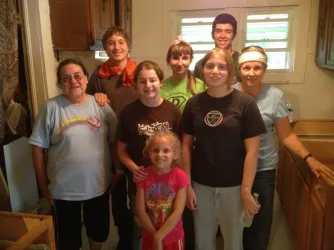
Many working in poverty find such a quid pro quo an intellectual bomb. It goes against everything many religious leaders and poverty experts expound. Unconditional giving represents the highest form of compassion, but it is ineffective.
Here is the personal story of one man’s journey on a mission trip to help the poor and how he came to terms with what the Bible teaches about how to help the poor to help themselves.
Imagine such a charity
Mr. Lupton has summarized how we might think of new and more effective charities to help the poor:
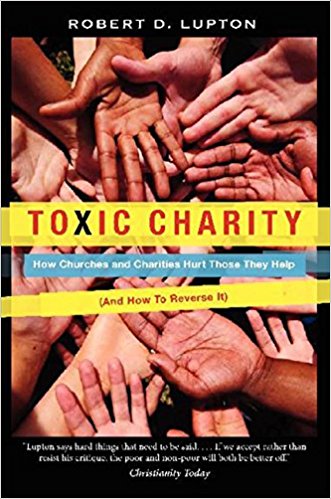
“What if we asked ourselves “What outcomes would we actually like to see from our charity?” And then began to restructure our giving to produce those very results. If we cared about, for instance, seeing human dignity enhanced, or trusting relationships being formed, or self-sufficiency increasing, then we could employ proven methods known to accomplish these goals. We know that trust grows with accountability over time. We know that mutual exchange and legitimate negotiating is energizing (people of every culture love to bargain). And we know that employment starts people on the path to self-reliance.’ We know these things. And we have the capacity to accomplish them. But the will to change our traditional charity systems – now that is the real challenge.” [vii]
Here is a real-world example of a charity fighting to help the unemployed poor and a culture fighting against them.
Form a charity
Are you one of those people that can link people to people? Then do it! Form a charity – America desperately needs people to organize encounters between the middle class and the poor and promote community. We will help – Contact Us!
The Numbers
We have to help about 40 million Americans get out of poverty. We have to do it as individuals — one-on-one. More than 200 million adults in America are not in poverty. If just one-fourth of us took one person and helped that individual, we could make a big difference in helping eliminate poverty. Each case will be unique; each person will require individual mentoring. Time to get to work!
Conclusion
To solve poverty, people will have to get involved personally as mentors and friends of the poor. Mentors must encourage education, hard work, basic life skills, and good decisions. Mentors must show they care and want to help the poor integrate and contribute to the community. Welfare programs have increased dramatically over the past 60 years, but the poverty rate has remained flat. Government alone can’t solve the poverty problem. We need more people to get involved and fill the friendship, education, encouragement, and motivation gap.
[I] Teresa, Mother. 1997. “No Greater Love.” New World Library. Page 101.
[ii] Ibid, 97-98.
[iii] Dr. Martin Luther King Jr. 1963, Strength to Love, William Collins Sons & Co Ltd., Glasgow. Page 15.
[iv] Gurteen, Stephen Humphreys. 1882. “A Handbook on Charity Organization.” Bibliolife, LLC. Page 12.
[v] ibid. Page 12 -13.
[vi] Robert D. lupton. 2011. Toxic Charity. HarperCollins Publishers. Page 128.
[vii] ibid. Page 63.